Background
Mr. Churchland was born on October 21, 1942, in Vancouver, British Columbia, Canada.





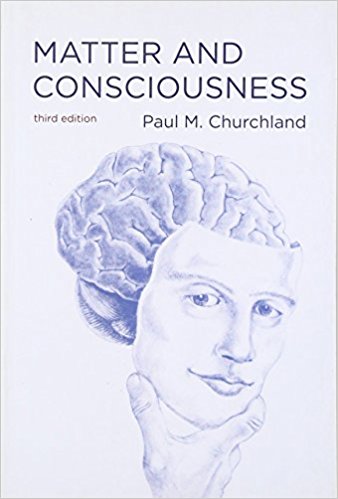
(An updated edition of an authoritative text showing the r...)
An updated edition of an authoritative text showing the relevance for philosophy of mind of theoretical and experimental results in the natural sciences. In Matter and Consciousness, Paul Churchland presents a concise and contemporary overview of the philosophical issues surrounding the mind and explains the main theories and philosophical positions that have been proposed to solve them. Making the case for the relevance of theoretical and experimental results in neuroscience, cognitive science, and artificial intelligence for the philosophy of mind, Churchland reviews current developments in the cognitive sciences and offers a clear and accessible account of the connections to philosophy of mind. For this third edition, the text has been updated and revised throughout. The changes range from references to the iPhone's "Siri" to expanded discussions of the work of such contemporary philosophers as David Chalmers, John Searle, and Thomas Nagel. Churchland describes new research in evolution, genetics, and visual neuroscience, among other areas, arguing that the philosophical significance of these new findings lies in the support they tend to give to the reductive and eliminative versions of materialism. Matter and Consciousness, written by the most distinguished theorist and commentator in the field, offers an authoritative summary and sourcebook for issues in philosophy of mind. It is suitable for use as an introductory undergraduate text.
http://www.amazon.com/gp/product/0262519585/?tag=2022091-20

(In Matter and Consciousness, Paul Churchland clearly pres...)
In Matter and Consciousness, Paul Churchland clearly presents the advantages and disadvantages of such difficult issues in philosophy of mind as behaviorism, reductive materialism, functionalism, and eliminative materialism.
http://www.amazon.com/gp/product/0262031353/?tag=2022091-20
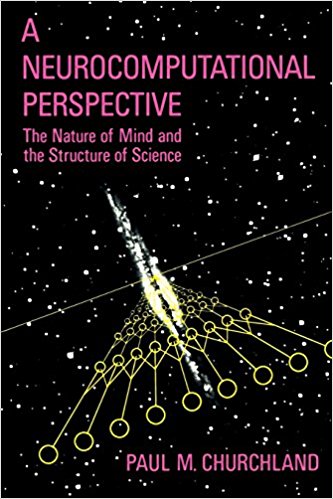
(If we are to solve the central problems in the philosophy...)
If we are to solve the central problems in the philosophy of science, Paul Churchland argues, we must draw heavily on the resources of the emerging sciences of the mind-brain. A Neurocomputationial Perspective illustrates the fertility of the concepts and data drawn from the study of the brain and of artificial networks that model the brain. These concepts bring unexpected coherence to scattered issues in the philosophy of science, new solutions to old philosophical problems, and new possibilities for the enterprise of science itself.
http://www.amazon.com/gp/product/0262531062/?tag=2022091-20
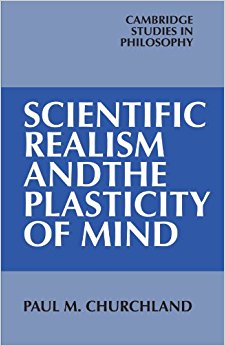
(A study in the philosophy of science, proposing a strong ...)
A study in the philosophy of science, proposing a strong form of the doctrine of scientific realism' and developing its implications for issues in the philosophy of mind.
http://www.amazon.com/gp/product/0521338271/?tag=2022091-20
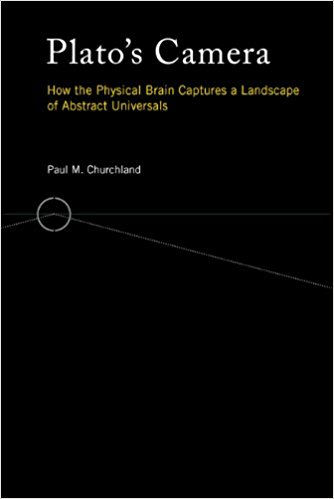
(In Plato's Camera, eminent philosopher Paul Churchland of...)
In Plato's Camera, eminent philosopher Paul Churchland offers a novel account of how the brain constructs a representation -- or "takes a picture" -- of the universe's timeless categorical and dynamical structure. This construction process, which begins at birth, yields the enduring background conceptual framework with which we will interpret our sensory experience for the rest of our lives. But, as even Plato knew, to make singular perceptual judgments requires that we possess an antecedent framework of abstract categories to which any perceived particular can be relevantly assimilated. How that background framework is assembled in the first place is the motivating mystery, and the primary target, of Churchland's book. Unexpectedly, this neurobiologically grounded account of human cognition also provides a systematic story of how such low-level epistemological activities are integrated within an enveloping framework of linguistic structures and regulatory mechanisms at the social level. As Churchland illustrates, this integration of cognitive mechanisms at several levels has launched the human race on an epistemological adventure denied to all other terrestrial creatures. In Plato's Camera, eminent philosopher Paul Churchland offers a novel account of how the brain constructs a representation -- or "takes a picture" -- of the universe's timeless categorical and dynamical structure. This construction process, which begins at birth, yields the enduring background conceptual framework with which we will interpret our sensory experience for the rest of our lives. But, as even Plato knew, to make singular perceptual judgments requires that we possess an antecedent framework of abstract categories to which any perceived particular can be relevantly assimilated. How that background framework is assembled in the first place is the motivating mystery, and the primary target, of Churchland's book. Unexpectedly, this neurobiologically grounded account of human cognition also provides a systematic story of how such low-level epistemological activities are integrated within an enveloping framework of linguistic structures and regulatory mechanisms at the social level. As Churchland illustrates, this integration of cognitive mechanisms at several levels has launched the human race on an epistemological adventure denied to all other terrestrial creatures.
http://www.amazon.com/gp/product/B007IVBJPO/?tag=2022091-20
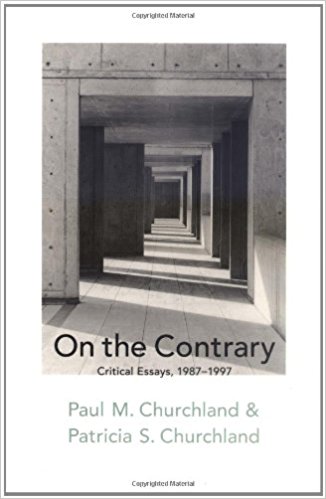
(Paul and Patricia Churchland take on their critics -- wit...)
Paul and Patricia Churchland take on their critics -- with verve, combativeness, and generosity. Paul M. and Patricia S. Churchland are towering figures in the fields of philosophy, neuroscience, and consciousness. This collection was prepared in the belief that the most useful and revealing of anyone's writings are often those shorter essays penned in conflict with or criticism of one's professional colleagues. The essays present the Churchlands' critical responses to a variety of philosophical positions advanced by some two dozen philosophical theorists. The book is divided into three parts: part I, Folk Psychology and Eliminative Materialism; part II, Meaning, Qualia, and Emotion: The Several Dimensions of Consciousness; and part III, the Philosophy of Science. V. S. Ramachandran and Rick Grush are coauthors on two of the essays.
http://www.amazon.com/gp/product/0262531658/?tag=2022091-20
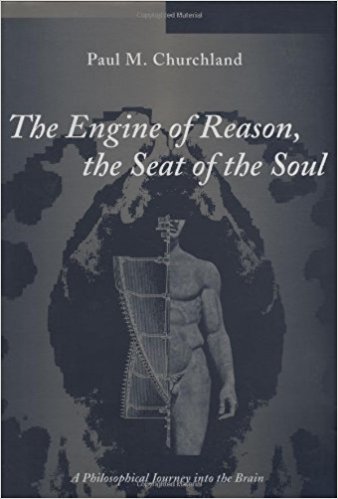
(A new picture of the mind is emerging, and explanations n...)
A new picture of the mind is emerging, and explanations now exist for what has so long seemed mysterious. This real understanding of how the biological brain works -- of how we work -- has generated a mood of excitement that is shared in a half-dozen intersecting disciplines. Philosopher Paul Churchland, who is widely known as a gifted teacher and expository writer, explains these scientific developments in a simple, authoritative, and pictorial fashion. He not only opens the door into the ongoing research of the neurobiological and connectionist communities but goes further, probing the social and moral dimensions of recent experimental results that assign consciousness to all but the very simplest forms of animals.In a fast-paced, entertaining narrative, replete with examples and numerous explanatory illustrations, Churchland brings together an exceptionally broad range of intellectual issues. He summarizes new results from neuroscience and recent work with artificial neural networks that together suggest a unified set of answers to questions about how the brain actually works; how it sustains a thinking, feeling, dreaming self; and how it sustains a self-conscious person.Churchland first explains the science -- the powerful role of vector coding in sensory representation and pattern recognition, artificial neural networks that imitate parts of the brain, recurrent networks, neural representation of the social world, and diagnostic technologies and therapies for the brain in trouble. He then explores the far-reaching consequences of the current neurocomputational understanding of mind for our philosophical convictions, and for our social, moral, legal, medical, and personal lives.Churchland's wry wit and skillful teaching style are evident throughout. He introduces the remarkable representational power of a single human brain, for instance, via a captivating brain/World-Trade-Tower TV screen analogy. "Who can be watching this pixilated show?" Churchland queries; the answer is a provocative "no one." And he has included a folded stereoscopic viewer, attached to the inside back cover of the book, that readers can use to participate directly in several revealing experiments concerning stereo vision.A Bradford Book
http://www.amazon.com/gp/product/0262531429/?tag=2022091-20

(In this collection of essays, Paul Churchland explores th...)
In this collection of essays, Paul Churchland explores the unfolding impact of the several empirical sciences of the mind, especially cognitive neurobiology and computational neuroscience on a variety of traditional issues central to the discipline of philosophy. Representing Churchland's most recent research, they continue his research program, launched over thirty years ago, and which has evolved into the field of neurophilosophy.
http://www.amazon.com/gp/product/0521692008/?tag=2022091-20
Mr. Churchland was born on October 21, 1942, in Vancouver, British Columbia, Canada.
He graduated from the University of British Columbia with a Bachelor of Arts. Mr. Churchland earned his Doctor of Philosophy from the University of Pittsburgh in 1969, his dissertation entitled "Persons and P-Predicates" written with Wilfrid Sellars as his advisor.
In 1966 he was appointed instructor at University of Pittsburg. From 1967 to 1969 he was a lecturer at University of Toronto. Between 1969 and 1974 he served as an assistant professor, University of Manitoba. During 1974-1979 he worked as an associate professor, and in 1979-1984 be held the post of professor. During 1982-1983 he was a member of Institute for Advanced Study, Princeton, NJ. From 1984 Mr. Churchland worked as a professor, University of California, San Diego. There, he served as Department Chair from 1986-1990.
As of this February 2017, Paul Churchland is recognised as Professor Emeritus at the University of California, San Diego, where he earlier held the Valtz Family Endowed Chair in Philosophy (through 2011), and continues to appear as a philosophy faculty member on the UCSD Interdisciplinary Doctor of Philosophy Program in Cognitive Science and with the affiliated faculty of the UCSD Institute for Neural Computation. As of February 2017, he is also a member of the Board of Trustees of the Center for Consciousness Studies of the Philosophy Department, Moscow State University.
Professor Churchland has authored several books in philosophy, which have been translated into many languages. Mr. Churchland has written a number of published articles, some of which have been translated into other languages, including several that have had a substantial impact in philosophy.
His most famous essay is his 1981 Eliminative Materialism and the Propositional Attitudes, which has been translated into five languages and reprinted over twenty times.
(In this collection of essays, Paul Churchland explores th...)
(In Matter and Consciousness, Paul Churchland clearly pres...)
(In Plato's Camera, eminent philosopher Paul Churchland of...)
(If we are to solve the central problems in the philosophy...)
(A study in the philosophy of science, proposing a strong ...)
(An updated edition of an authoritative text showing the r...)
(A new picture of the mind is emerging, and explanations n...)
(Paul and Patricia Churchland take on their critics -- wit...)
Paul Churchland is a leading proponent of so-called eliminative materialism in the philosophy of mind. In contrast to a reductive materialism which claims that mental processes are in some way identical with physical processes, eliminative materialism claims that mental processes as traditionally conceived do not exist. Mr. Churchland defends this thesis by arguing that the network of concepts and principles which common sense relies on in explaining mental processes and behaviour is a scientific theory, albeit of a primitive kind.
But this network is in fact a poor scientific theory when judged by the normal scientific requirements of predictive and explanatory success. In place of folk psychology Mr. Churchland proposes a theory based on a fusion of neuroscience and artificial intelligence. This naturally requires a fairly detailed consideration of the findings of these disciplines, and Paul Churchland’s work here is smoothly complemented by that of his wife Patricia, whose work tends to have a greater empirical emphasis than his.
Critics have objected to a number of aspects of this general programme. Some have argued that folk psychology is not a scientific theory at all, or, that if it is one, it is not a bad one. Other critics have objected that Mr. Churchland's version of materialism is unblc to provide any convincing account either of the intentional states or of mental states with a qualitative ‘feel’ to them.
Paul Churchland is the husband of philosopher Patricia Churchland, and it has been noted that, "Their work is so similar that they are sometimes discussed, in journals and books, as one person."
The Churchlands are the parents of two children, Mark Churchland and Anne Churchland, both of whom are neuroscientists.
